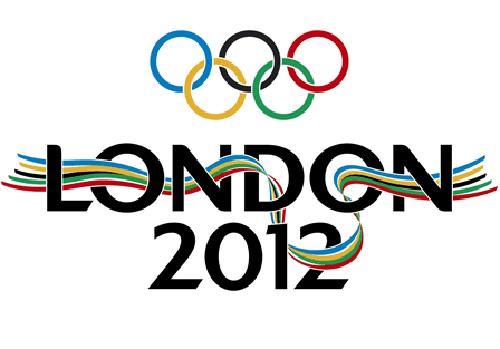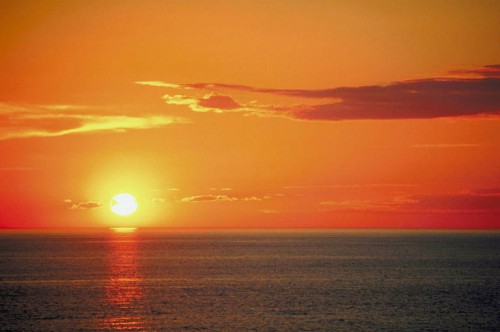From the Beginning – England’s Olympic History


The upcoming Summer Olympic Games in London, England is expected to be one of the best ever.
As the London 2012 Olympic and Paralympic Games nears, VisitEngland has put together a summary of England’s Olympic history.
A look at England’s Olympic history showcases its humble beginnings in a rural Shropshire Market Town to the Bright Lights and Award-Winning Architecture of London in 2012.
1850 – Once Upon a Time, in Shropshire
So everyone knows that the Olympic Games were first conceived in Greece, right? Well, in fact, the modern International Games have their roots not in Athens, but rather in the small market town of Much Wenlock in Shropshire. In 1850 the town’s local doctor, philanthropist William Penny Brooks, established the Wenlock Olympian Games to ‘promote the moral, physical and intellectual improvement of the inhabitants of the town and neighbourhood of Wenlock by encouragement of outdoor recreation.’
Now, more than 150 years later, one of the London2012 mascots has been named Wenlock in Brookes’ memory, cementing in history the crucial role he played as the forefather of the modern Olympic Games.
1865 – The Games Go National
After several successful years of Much Wenlock Olympian Games, Brookes was responsible for creating the National Olympian Games in 1865. The premiere in Crystal Palace, London attracted 10,000 spectators, and the Games were held annually in different English towns and cities in the following years.
1908 – First Opening Ceremony and Going the Full Distance
Having originally been awarded to Rome, the fourth International Olympic Games instead came to London after the 1906 eruption of Mount Vesuvius skewed plans. The stadium at White City had been built at short notice for the Games (the first purpose-built Olympic venue), and was considered a marvel of its day, holding 68,000 spectators.
That year, the Olympic marathon started in front of the royal apartments at Windsor Castle and ended on the track at White City stadium in front of the royal box. At the time the actual race distance wasn’t fixed – it was just a very long road race; around 25 miles. Moving the starting point from Queen Victoria’s statue to East Terrace so that spectators wouldn’t hinder the athletes added 700 hundred yards to the typical distance.
The 1908 Games were the first to be launched by an Opening Ceremony, during which the competing nations marched into the stadium following their respective national flags.
It was during a speech for Olympic champions by Bishop Ethelbert Talbot in 1908 that the Olympic Creed derides. The Olympic Creed, still used to this day, reads: “The most important thing in the Olympic Games is not to win but to take part, just as the most important thing in life is not the triumph but the struggle. The essential thing is not to have conquered but to have fought well.”
When the Games closed in October, Great Britain topped the medal table with a total of 145 medals. Despite the short notice, the Games were widely declared a success and lay the foundations for London’s legacy as a host Olympic city.
1924 – England Sets Marathon Standard – 26 Miles 385 Yards (naturally)
In 1924, the length of the 1908 Olympic marathon – which turned out to be 26 miles 385 yards – was internationally accepted as the official length of a marathon.
1943 – Stoke Mandeville Develops Sport for Rehabilitation
This August, the Buckinghamshire village of Stoke Mandeville will play host to the Paralympic Torch Relay; apt, as this was in fact the birthplace of the Paralympics. Pioneering German neurologist Professor Sir Ludwig Guttmann became head of the National Spine Injury Centre (NSIC) at the Ministry of Pensions Hospital in Stoke Mandeville towards the end of WWII and came up with the revolutionary idea of using sport for rehabilitation. Sir Ludwig’s patients were encouraged to try activities such as wheelchair polo, basketball and archery.
1948 – War is Over: National Morale Boosted by First Televised Games
Despite a shortage of time and resources, London rose to the challenge to host the first Games after World War II and a 12-year hiatus. This time the Games centred around Wembley stadium and were the first televised Olympic Games, though at that stage few people owned their own television set.
In 1948, the historic coastal town of Dover provided the welcome point for the Olympic Torch. It was a first for both Dover and England because the 1908 London Games took place before the torch relay tradition began. The flame, setting out from Olympia in Greece, travelled in 1,531 stages totalling 720 miles (1,160km), and 1,720 weatherproof torches – including spares – were manufactured to carry it on its way. Brought from Calais to Dover aboard HMS Bicester, a destroyer of the Nore Command, the flame then continued its relay via the Kent towns of Canterbury, Charing, Maidstone and Westerham, through Surrey and Berkshire and on to Wembley.
In 1948, due to post-war rationing, many teams who attended the Olympic Games had to bring their own food with them.
1948 – London’s Second Olympic Games Bring Paralympics to the Fore
In 1948, Sir Ludwig Guttmann organised a competition for 16 paralysed servicemen – the Stoke Mandeville Games for wheelchair athletes – which coincided with the opening ceremony of the London 1948 Olympic Games. Prior to 1948, athletes with disabilities had competed in the same sporting events. The first official Paralympic Games, open not only to war veterans, took place 12 years later, in Rome.
Sir Ludwig went on to found the British Sports Association for the Disabled, and was knighted by the Queen when he retired in 1966, having already been awarded an OBE and CBE. The NSIC continues its rehabilitation programme using sports and exercise to this day, and has expanded from just 26 beds to 190 in the main hospital.
2005 – “The International Olympic Committee has the honour of announcing the Games of the 30th Olympiad in 2012 are awarded to the city of… LONDON”
A spine-tingling announcement was made to thousands of gatherers in Trafalgar Square in central London on 6th July 2005. The city staved off stiff competition from Moscow, New York, Madrid and finally Paris after an impressive presentation by ex-Olympian Lord Coe, who chaired the bid. Prime Minister Tony Blair called it a ‘momentous day’ for the country, saying of London: “many reckon it is the greatest capital city in the world and the Olympics will help keep it that way”.
2012 – London Hosts 30th Olympic and Paralympic Games
This year, London becomes the first city to have hosted the Olympic Games three times. The Games will take place across the country – many outside of the purpose-built 500 acre Olympic Park in Stratford. Football matches will place in Coventry, Manchester and Newcastle; sailing events in Weymouth; cycling in Surrey; rowing in Eton Dorney; mountain biking in Essex and canoe slalom in the Lee Valley.
The 2012 Games will coincide with the culmination of a four-year cultural programme, the Cultural Olympiad, which includes 500 events held over four years. The finale, the London2012 Festival, is the biggest festival the UK has ever seen.
The 2012 Olympic Torch Relay departs from Land’s End, Cornwall on May 19th and will make a 70-day journey – carried by 8,000 torchbearers – around the UK, travelling within 10 miles of 95% of the population. On August 24th, a Paralympic flame will be lit in London, and will meet flames from Belfast, Edinburgh and Cardiff in Stoke Mandeville – the birthplace of the Paralympics – before returning to the Olympic Stadium.
For more information and inspiration visit www.visitengland.com.





